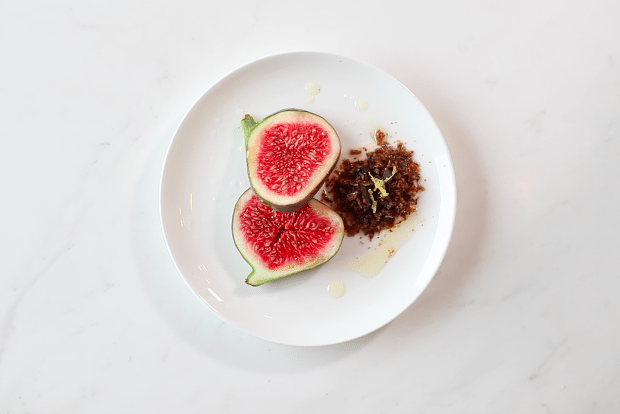
A meal of mealworms may seem unconventional, but one environmentally conscious, Hong Kong-based entrepreneur is hoping to change people's minds when it comes to how they view food. Those people include Chinese consumers, who Katharina Unger, the founder of fashionable mealworm harvesting startup Livin Farms, believes are already on the right track. After all, they certainly have a long history of incorporating insects into foods and medicines, and the fact that the Chinese consumers she's trying to convince are increasingly captivated by Western health, lifestyle, and design trends helps, too.
The Hive, the mealworm harvesting kit Unger created with Livin Farms, is sleek and simple. Vaguely reminiscent of small, stacked organizational drawers for an office desk, the compact kit enables its user to harvest protein-rich mealworms in their own kitchen, obtaining a sustainable and healthy food source in a small space. Each kit takes about eight to nine weeks to achieve the first harvest, but can produce 200-500 grams of mealworms each week. To complete the package, Livin Farms provides recipes with photos that look like they could have been in the crisp pages of an indie food magazine.
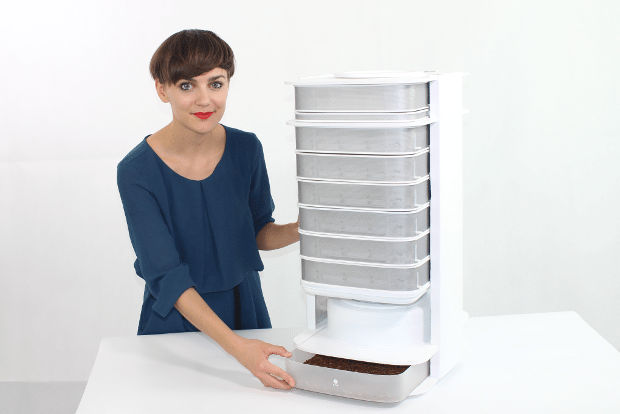
All aspects of the campaign are, in fact, heavily design-focused, communicating modernity and streamlined design in everything from the campaign photos to the Hive itself. The whole kit costs $699 ($649 at a discounted rate), which, of course, includes a container of mealworms to start things off.
Unger, who grew up in Austria, recently took to Kickstarter and raised funding for the Hive. We caught up with her to learn what her trials and conferences in Hong Kong and Shenzhen had revealed. Jing Daily spoke with Unger by email and and discussed how food safety, healthy eating trends, and dining culture in China are in line with the goals of Livin Farms.
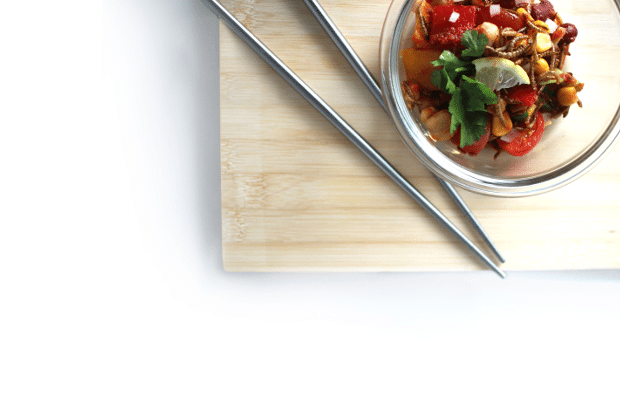
What exactly was the reaction when you did a taste test in Hong Kong?#
A lot of people had eaten insects already in some way. Others felt that it tasted (and looked a bit) like seafood, which is also a great association. We also sold Hive units to China and Hong Kong. Very excited about this.
Will it be easier to break into the mainland China market because of their relative openness to eating bugs?#
I personally have been living in Hong Kong for the last year. The last couple of months, the whole team was in Shenzhen prototyping and exploring opportunities. It was interesting to give presentations here in southern China and see very different perspectives from people. A woman came up to me after I gave a talk at an event in Shenzhen. She said the insects as food very much reminded her of her childhood and her gathering insects to eat with her mother. Yet, I do not see a lot of insect eating in and around Shenzhen. I hope we can get to the point where people in China revive the old culture of eating insects since it is delicious, healthy, and sustainable.
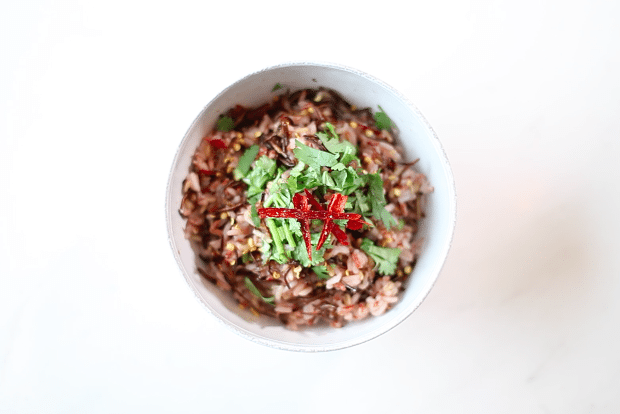
Do you think there is a big market for focus on health and wellness in general in Hong Kong and the mainland?#
Insects have very beneficial nutritional compositions. Very new studies show the potential that mealworms have in helping to prevent Alzheimer´s. Apart from their nutritional value and high protein, fiber, and vitamin content, they are processed into oils for skincare, other cosmetics, and in Chinese traditional medicine. Choosing healthy ingredients for your body is increasingly necessary when we are stressed by our busy lives and environmental factors. We found China and Hong Kong to be very health-conscious. Insects fit perfectly into this movement.
Would the fact that insects are generally important in Chinese medicine affect how Chinese consumers approach the Hive?#
We were impressed by the medicinal purposes that insects in China are used for. It does create a certain basis of trust because I assume that Chinese people have a relationship already to insects in so many different ways. Chinese medicine is a great and very much a trusted example that benefits people who are first introduced to the Hive.
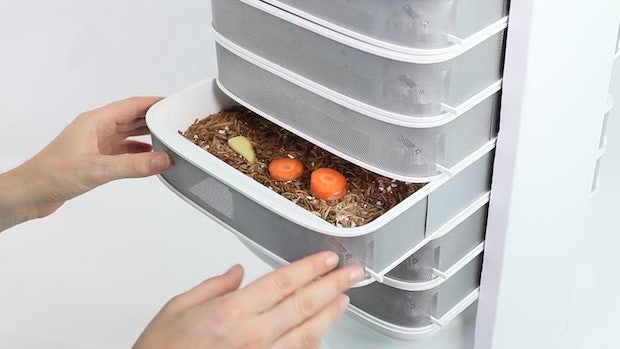
Urban beekeeping and aquaponics have slowly taken root in China, but are not yet mainstream. In your opinion, where are we at with the slow food movement in the Chinese mainland and Hong Kong and where are we headed?#
I was astonished by the number of very innovative urban farm projects in Hong Kong and Shenzhen. It is very promising to see this movement in such dense environments. The industry has developed very fast and for many people both in the West and in Asia, farming has become something unattractive. Now, people are starting to realize the value of freshly grown food and that, with the right tools, it is also easy, fun, and fashionable. It is very positive that southern Chinese and Hong Kong governments are supporting innovative projects in the fields of aquaponics and urban farming. There will be a lot happening in the next few years.
An important aspect of the Hive is that it conserves the energy needed to harvest other major foods, like meat. Is this something that Chinese consumers are educated on or you think they would be open to changing their diets for?#
Mealworms can definitely be eaten as a healthy and sustainable meat alternative. However, it does not mean that you absolutely have to ban all the other meats in your diet. The healthiest way of eating is to eat consciously and varied. This is something that Chinese people have perfected already. I love eating in China because there is so much choice in produce and almost every part of an animal is utilized. This is something that the West should copy from China.
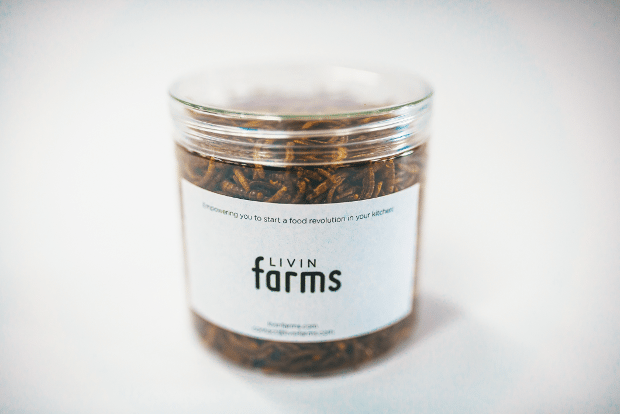
Your product packaging is very well designed and attractive—it almost makes you forget there are insects inside. Is this the key to encouraging Chinese consumers to bring this Hive into their homes?#
Design is key to familiarize people everywhere in the world that insects can be a food, rather than a nuisance. Once people understand that they are clean, can be hygienically raised, and that this process is easy and fun, they see it as a food. With the Hive in their homes, people show that they are innovative and care about the quality and healthiness of their food. They also show that they care about the environment—something that I see more and more of my Chinese friends becoming very aware of.
Food safety is a huge issue in China. How does that relate to what you are doing with the Hive?#
With the Hive, you always know 100 percent what you're eating. You know what you feed your worms and that you will receive a healthy product. There is no better way of knowing your food and that you can feel safe and happy about what you eat.